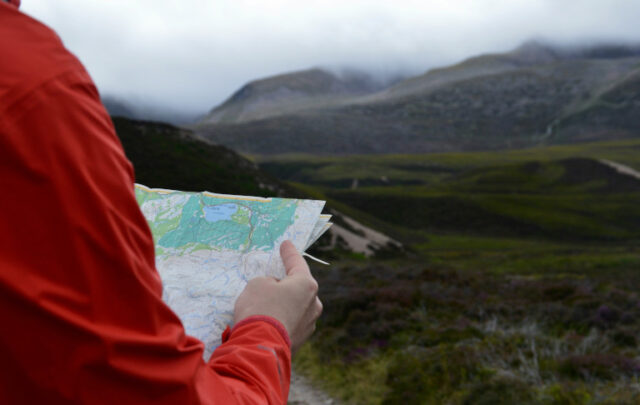
Apple, Tweet, Cloud, Stream, Web. A few months back a study by the National Trust in the UK revealed just how much of nature’s language has been co-opted by technology. By looking at informal conversations over the past three decades, the researcher, Dr. Robbie Love, found that 9 out of 10 uses of tweet now refer to social media, compared to none in the 1990s (before Twitter was created). In the 1990s, seven out of 10 uses of the word web referred to spiders. Now just 1 out of 100 do. Stream, net, branch, field, all of these words are becoming more technologically-oriented.
This comes on top of the silent loss over decades of ever more words of nature (and underlying the words, the knowledge these words encompass). In 2015, it was discovered that more than 50 words—from beech, buttercup, and fungus, to ivy, moss, and willow—had been removed from Oxford Junior Dictionary starting with the 2007 edition in order to make room for the more ‘relevant’ words, like blog and broadband. Not surprisingly, when discovered, there was some vociferous complaint—including from a series of prominent authors, among them Margaret Atwood, who wrote an open letter to Oxford University Press. But Oxford noted that it is not in the business of prescribing words, but simply reflecting their current usage, which may be a fair point, though if kids truly encounter more spreadsheets (added) than starlings (removed) that’s a truly terrifying thought.
So how do we stop this—not just the co-option of words or their removal from dictionaries? (And let’s be honest, how many children use dictionaries anyway, with Google around?) Rather, I’m talking about the shifting of language in the first place—the increasing irrelevance of words like acorn and dandelion (both removed). These words certainly aren’t irrelevant. In fact, these two are key edibles, with nutritional, medicinal, and other benefits. Acorns, in fact, were the primary staple for entire nations of Native Americans. And considering acorns’ relative ease of collecting, processing, and storing (no machinery needed), they will be a key staple for many people in the decades to come.
Not surprisingly, the solution to reclaiming and protecting our words is to use them—in the context in which they were intended. This summer my son and I collected blackberries, plucking them right from the bramble and popping many into our mouths. He does not know what a Blackberry is. He also has only one definition for a stream or a cloud. And I want to keep it that way—rooting these as primary definitions before he learns their techno-centric secondary definitions. By getting out and collecting acorns—to process into flour, or at least to make acorn cap whistles—that keeps those words in play (literally and figuratively). When we play in nature, we naturally develop the language of our surroundings (just like if we play online we develop that terminology).
So getting back outside is one part of the solution—and while in nature, we need to be actively present, attuning ourselves to our surroundings, stopping to identify a tree or a plant, and not just hiking blindly through them. The other, complementary part, is to unplug as much as possible. Spending less time online will mean less time tweeting (and more time available to hear actual tweets). Plus, as you share your experience of the day, if you’ve spent less time online and more outside, you won’t be telling people about the video you streamed, but the stream that you waded through.
Of course, it’s easy to say this, harder to do. Many of us are required to be in front of a computer all day long. And then we come home too tired to do anything other than sit in front of the TV. Worse, we often relate to our friends by discussing the media we consume, so not watching the shows means one fewer ways to relate. We also use all this online entertainment to keep ourselves distracted from the atrocities that are piling up day after day—whether the latest Trump scandal, the most recent school shooting, or the accelerating destabilization of Earth’s systems. (Shopping on Amazon is a lot more fun than reading about the burning of The Amazon.)
I recognize The Matrix is an increasingly dated example, but it is spot on here. Neo literally unplugs from the shared virtual world he was inhabiting. And that’s not easy. Not only does this exile him from the world and all people he’s ever known, but the real world he trades it for is horrifying. That’s what we face too: alienation from our family and friends as we prioritize a different purpose, and the knowledge of the looming threat of collapse—a time when the world could start looking like the world from The Matrix.
But unlike the movie, we’re not being chased by killer computers, and Gaia is still alive (and if not well, still vibrant and awe-inspiring). There are still beautiful streams, clouds, and tweets to watch and listen to.
So get outside every day. Somewhere. Walk barefoot through a park, collect some wild edibles, do some yoga in your yard, some breathing exercises in the forest, or simply sit under a tree somewhere, whatever you can. This will help heal you, and keep you happy in the unplugged world and tethered to the real world.
The reclamation of the language of nature will be slow for now. (When will AI make its debut in the Oxford Junior Dictionary? What will it replace?) But the goal ultimately is to keep these now secondary definitions alive, so that as consumer cultures fall, and the now dominant definitions of tweet, stream, Amazon, and Apple become relics, we’ll not have lost our connection to Gaia entirely and we’ll be able to start the long journey of rebuilding a healthy relationship with Her.
Teaser photo credit: By Ryan Gsell – originally posted to Flickr as DSC01688, CC BY 2.0





